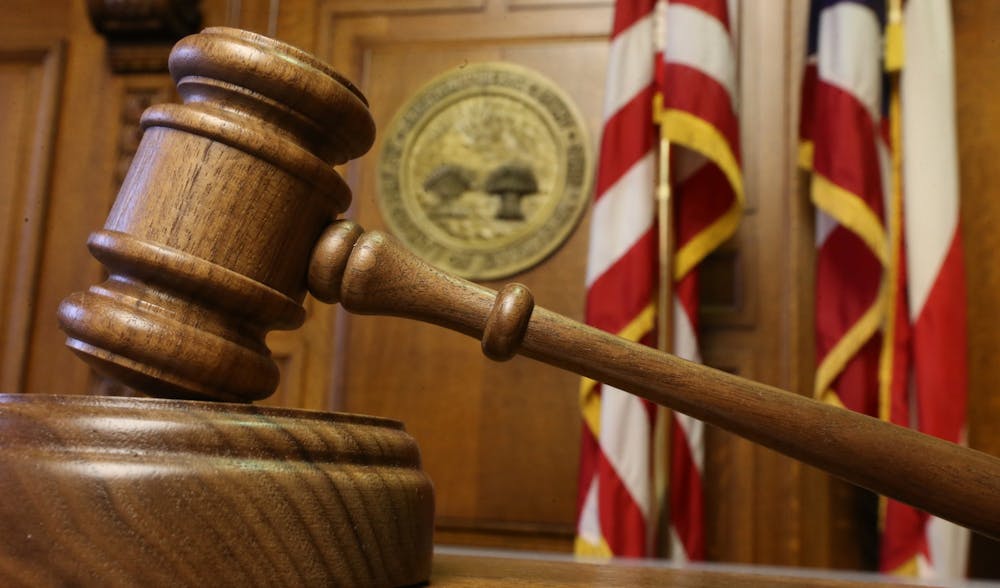An Indiana State Senate committee approved a bill on Tuesday that would lower the age at which juveniles could be charged with murder and tried as adults from 14 to 13. The bill would also add attempting to commit a serious offense such as kidnapping, rape or armed robbery to the list of existing offenses that allows courts to try children as adults.
The crux of the debate surrounding SB 449 was not, however, what age was most appropriatefor trying minors as adults, but whether children belong in the adult court system at all. The simple answer is a resounding no.
The committee voted 4 to 2 to approve Senate Bill 449 after removing a section that would have also included attempted murder and raising the proposed new minimum age from 12 to 13. However, these amendments aren’t nearly enough to remedy the systemic problem in Indiana’s courts. Regardless of small changes to the legislation, children should have no place in adult criminal court.
This isn’t the first time Indiana legislators have attempted to pass a billlike this. A similar bill that included attempted murderas an offense that would land a juvenile in adult criminal court and lowered the minimum age to 12 was heard in 2019 and passed through the Senate on a 45 to 3 vote. It was never approved by a House committee. That bill came in the wake of the Noblesville Middle School shooting that involved a 13-year-old boy who was too young to be tried as an adult under Indiana law.
No matter at what age you place the cutoff, trying children in adult court fails to consistently live up to the claims its champions suggest. Practically, it sees no success in deterring crime or reforming children. And ethically, it deprives youth in need of help the resources they need to succeed, in addition to disproportionately affecting youth of color.
If we are to serve our communities’ children to the best of our ability, as is our moral responsibility, then placing minors in the adult criminal system should be perceived as an outright assault on their most basic rights.
The University of California, Los Angeles School of Law’s Juvenile Justice Project in 2010 found that there has been little to no deterrent effect on juveniles prosecuted in adult court, and in many states, recidivism rates have actually increased. Statistics compiled from 15 states found juveniles tried in adult courts and subsequently released from state prisons were rearrested 82% of the time.
Judge Marilyn Moores of the Marion County Juvenile Division testified in Tuesday’s proceedings that many young teen and pre-teen offenders lack the cognitive brain development to understand their actions and ramifications, let alone the criminal case proceedings, WTTV reported.
Juvenile detention centers provide resources and services designed specifically for juveniles, rather than environments where they are unable to garner the necessary skills to function outside of prison.
This problem is underlined by the fact that measures like these consistently disproportionately affect children of color. Minority youth outnumber white children at every stage in our country’s juvenile justice system. According to the MacArthur Foundation, youth of color constitute approximately one-third of the adolescent population in the U.S. but two-thirds of incarcerated youth.
This argument made its way into the proceedings on Tuesday, ultimately leading to the committee that approved Senate bill 449 to call for a study to examine the rate at which children of color are sent to criminal court to be tried as adults. It is unclear when this report will be made public.
The American Bar Association concluded in 2016 that reform would be essential if the U.S. wanted to see improvements in recidivism rates among minors and those who entered the prison system as minors. But here we are in 2020, with the state of Indiana moving in the opposite direction.
Indiana’s reputation as a regressive state refusing to follow social and political standards set by the rest of the nation is only being reinforced with moves like this. It’s time to stop playing into fear-mongering and begin the justice system reform these kids deserve.
Ashley Sharpley (she/her) is a sophomore studying public policy analysis and business law. She is a proud owner of Echo the Gecko.





